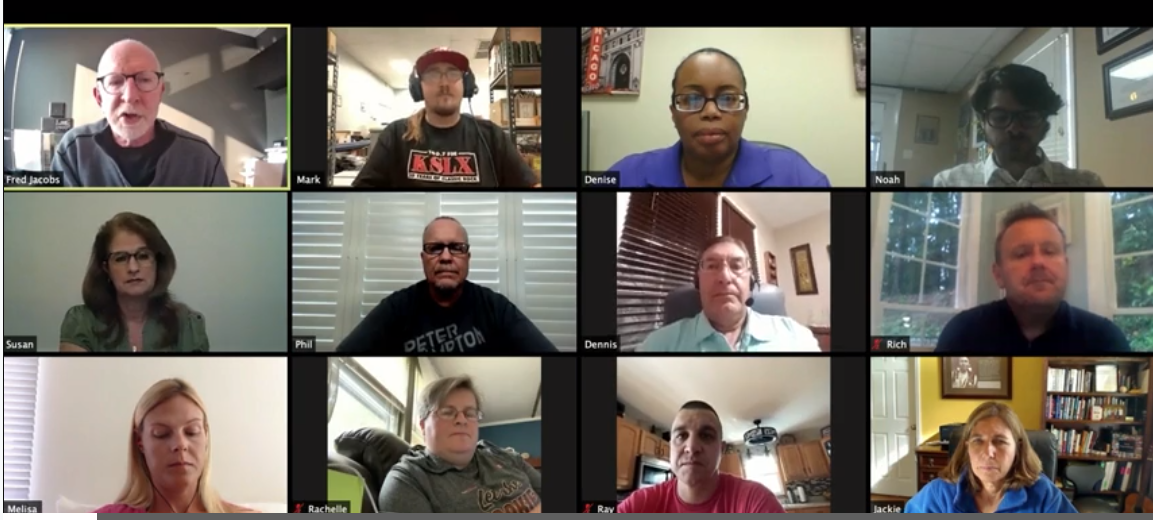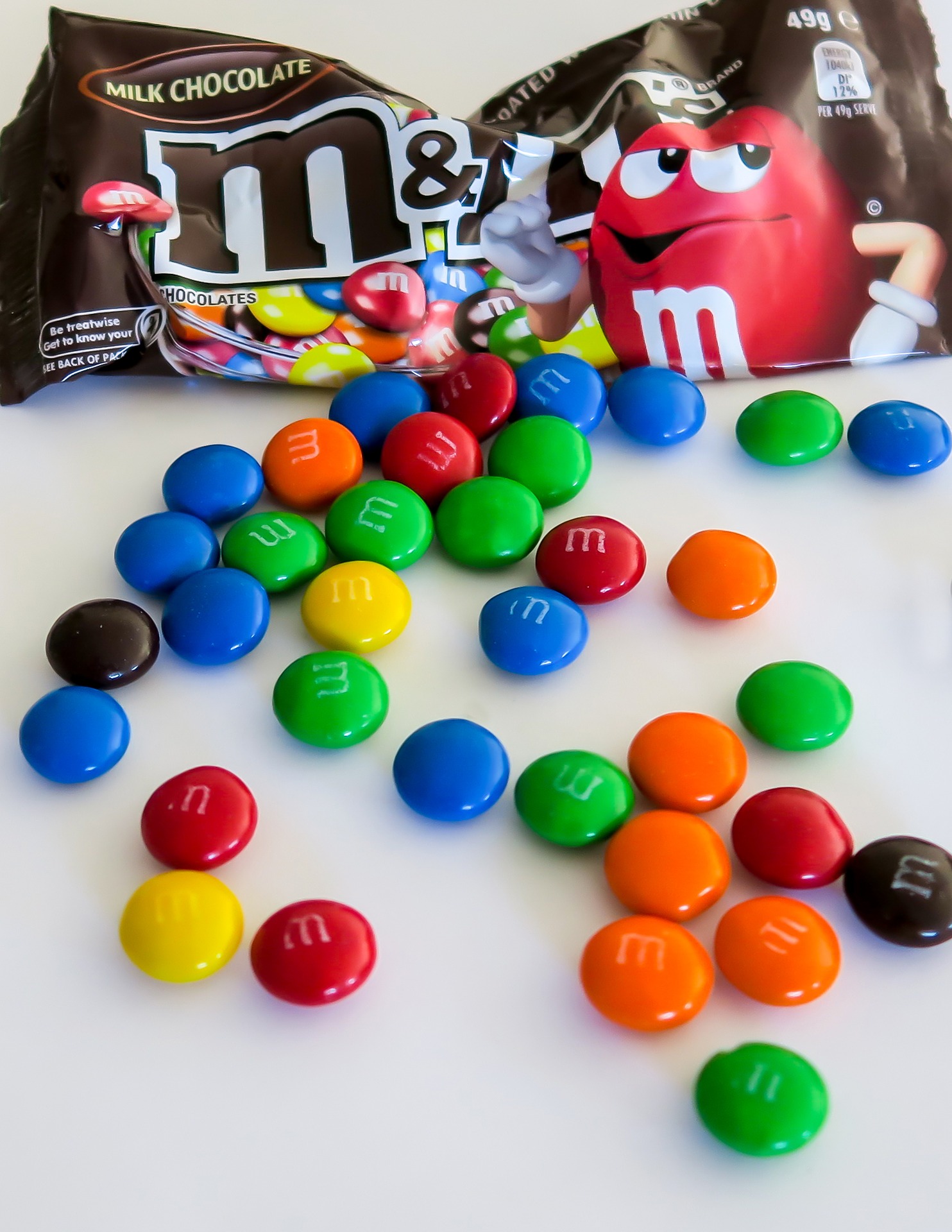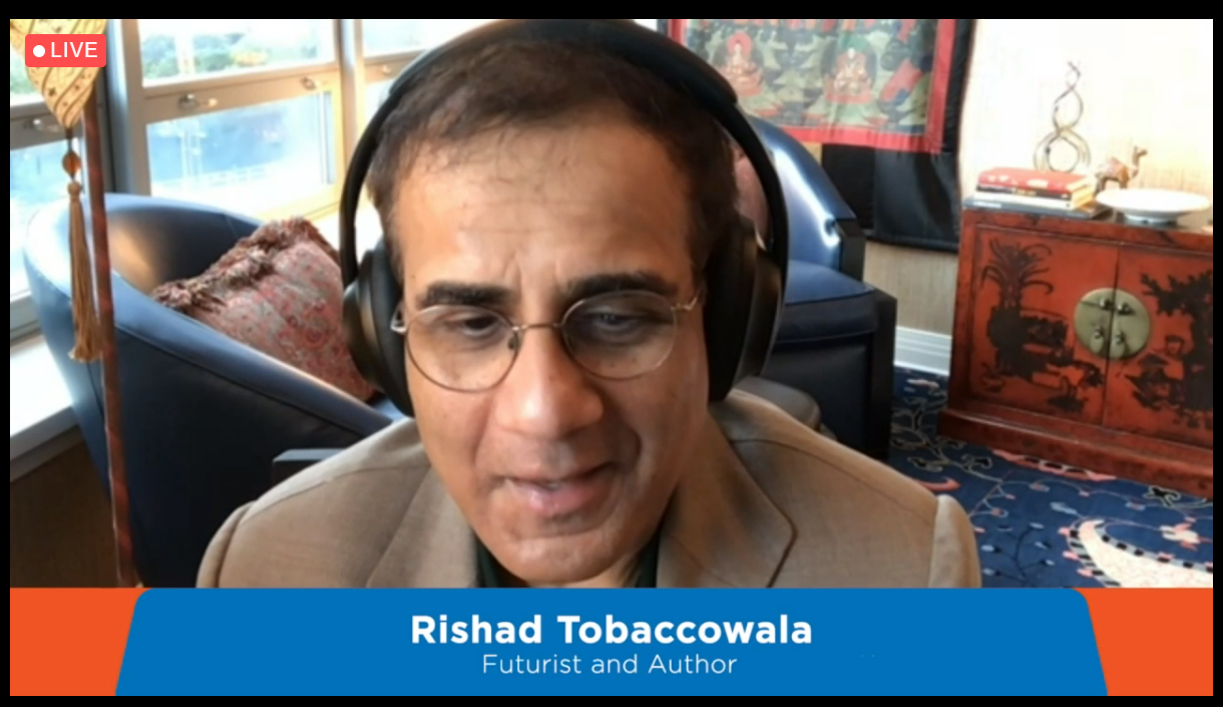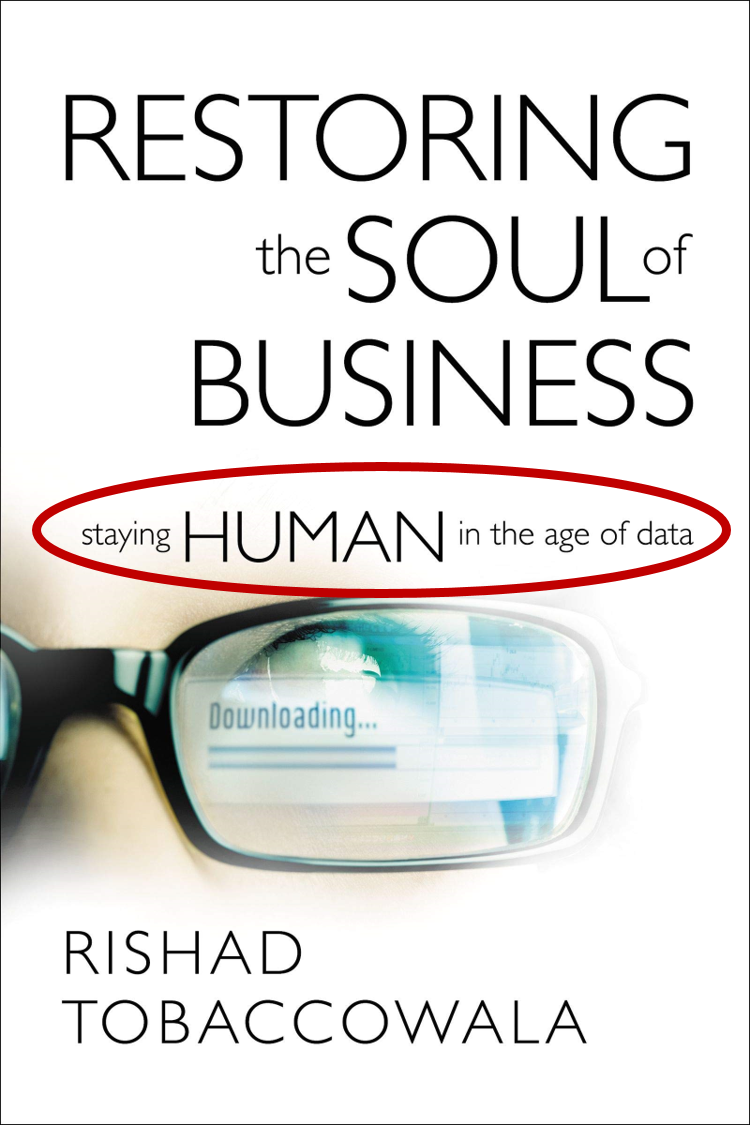
It’s Day 3 of the NAB/RAB Radio Show, and hopefully, you’re in attendance. Set for Nashville, the show pivoted this summer, wisely electing the virtual route. I’ve sat in on sessions these past couple days. The content is very solid, and I’ve been able to keep up with emails and other business while I watch from the convenience of my desk here in Detroit.
Last week, it was PRPD and the Morning Show Boot Camp – and I blogged about both of those virtual-for-now conferences in “The Pros And Cons Of Virtual Conferences.” As Abby Goldstein and Don Anthony told me, the reviews were very solid for both shows.
And while each executive learned from the experience, they each agreed virtual will be a component of their future get-togethers, even when conferences return to being in-person events.
The Radio Show is figuring it out as the show goes along, too – a metaphor for 2020 – where we’re all tasked with learning new tricks, hacks, ways of doing things differently, and pulling off things we’ve never done before.
Later today, Paul Jacobs, Josh Miely, and I will take you backstage – or better put, inside the “sausage factory.” Our session is called “Who’s Zooming Who? Using Video Chat As A Research Tool.”
We conducted a Zoom focus group late last month among radio listeners from around the country. Many of you have experienced old school focus groups where a dozen or so consumers sit around a conference room, talking radio, while eating pizza and M&Ms.
Thanks to COVID, we’ve had to show more than a little agility. I’ve been conducting focus groups over the Zoom platform since April for stations all around the country, and we’re learning tons about the American mindset in the middle of a pandemic over time.
Usually when you do groups, people’s lives are pretty stable – even boring. They have their jobs, their families, and their routines. And while nothing is forever, most people have predictable lifestyles.
That was, until this past March.
I’ve used these Zoom groups to dig in deeper. How are people feeling? Are they scared or hopeful? What do they miss the most? And what can radio provide that no other media platform can?
We’re “on” today at 4:30 on Channel A, and I hope you can join us. We’ll show key segments from our group, and then talk about what we learned from the experience.

Interestingly enough, our session was nicely teed up yesterday by none other than keynoter Rishad Tobaccowala. He addressed the Radio Show back in 2018 in Orlando, and his talk generated lots of buzz. And we blogged about Rishad a couple years ago in a post aptly titled, “Only The Schizophrenic Will Thrive.”
This year was a little different, because…well, this year is a LOT different.
Rishad’s theme was a synopsis of his new book, Restoring the Soul of Business, a handbook for these COVID times we’re trying to endure, both in  our personal and our working lives. He ran down many of the key points from the book, which looks to be a great read.
our personal and our working lives. He ran down many of the key points from the book, which looks to be a great read.
But what jumped out at me about the book is its subtitle:
“Staying Human In The Age Of Data.”
Yeah, I circled it.
That’s because it very much reflects how I’m looking at the world – during “normal” years, but particularly during this pandemic.
In his talk yesterday, Rishad walked us through five key traits of leaders: capability, integrity, vulnerability, inspiration, and especially during COVID, empathy.
The ability to understand what your staff is going through, as well as your audience and your advertisers separates great leaders from the also-rans.
It shouldn’t be hard to feel a sense of empathy for the audience (or if you’re in sales, for your advertisers). But the problem is – cliché or not – we are in unchartered waters. “Normally,” a veteran programmer would have a great sense of what listeners in a their city or town are thinking.
Is the local sports team winning? Has the weather been unusually harsh? Has the mayor’s new proposal angered constituents? How big will the state fair be this year? Should we run our annual Halloween costume party?
But not this year.
Every day in 2020 is an an eye-opener. And your listeners (just like all of us) are experiencing life like never before. Empathy is exactly what they need.
But we gain no insight about their mindset from rating books, perceptual studies, or music tests. There is no empathy in pie charts. As Rishad reminds us, we have to look beyond the data in order to truly understand and empathize.
 And that’s why a deep look into the hearts and souls of radio listeners as they navigate the coronavirus is just what our industry need to see. Rishad talks about gaining a better understanding of the “emotional operating system.” And more than ever, we’re making decisions – and so is the audience – more on emotion than on rational, hard data.
And that’s why a deep look into the hearts and souls of radio listeners as they navigate the coronavirus is just what our industry need to see. Rishad talks about gaining a better understanding of the “emotional operating system.” And more than ever, we’re making decisions – and so is the audience – more on emotion than on rational, hard data.
We’ll also talk about how we do these groups, what they’ve taught us, and how to use – and not abuse – this information.
Join us today at the Radio Show, 4:30pm ET on Channel A. Even though it’s virtual, we’ll supply the M&Ms. And after the session is over, we invite you to bring a favorite beverage. We’ll hang around after the session with you to say hello.
We can’t be together in Nashville to hang out, have dinner, and enjoy a little local music. But thanks to video chat technology, we can do the next best thing.
Info on “Who’s Zooming Who – Using Video Chat As A Research Tool” is here.
- For Radio, Will It Be Christmas In April (And Hopefully, May)? - April 21, 2025
- Media And Technology In 2025: Believe It Or Not! - April 18, 2025
- In Radio, You Just Never Know - April 17, 2025




Leave a Reply